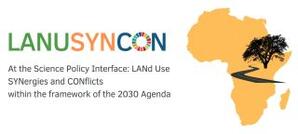Lanusyncon Interdisciplinary Research Team
LANUSYNCON combines expertise from various scientific backgrounds in a transdisciplinary and interdisciplinary research framework. The team includes ecologists, biologists, agricultural scientists, economists, political and environmental legal scientists working together to better understand synergies and conflicts between Sustainable Development Goals (SDGs) in the context of land use.
Research Group Leader
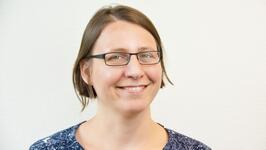
Jun-Prof. Dr. Lisa Biber-Freudenberger
Jun-Prof. Dr. Lisa Biber-Freudenberger has been doing research in the field of sustainable development and biodiversity conservation for more than 10 years. As a Junior Professor at the Center for Development Research (ZEF), she has been working on different topics including land use, biodiversity, and human development as well as Science Policy Interfaces (SPIs). As the research group and project leader, Lisa Biber-Freudenberger supervises all research being conducted in LANUSYNCON and coordinates the activities between the different partners.
Junior Researchers
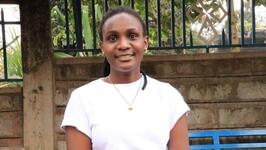
Hannah Kamau (WP2b)
Hannah holds a Master of Science and Bachelor of Science in Range Management both from the University of Nairobi in Kenya. She has actively been involved in the scaling of climate-smart agriculture and sustainable development in Africa, particularly in Kenya. Before joining LANUSYNCON, she was a research associate at the World Agroforestry and a research assistant at the African Drylands Institute for Sustainability (ADIS) in Kenya. She is passionate about improving community resilience through evidence-based solutions and policies. Hannah pursues her doctoral degree in agricultural practice options for synergies between food production and biodiversity conservation in Kenya.
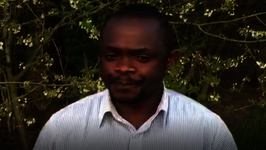
Philipo Jacob (WP2c)
Philippo Jacob holds a Master of Science in Wildlife Management and Conservation of Sokoine University of Agriculture in Tanzania. Before he joined LANUSYNCON, he had been doing biodiversity conservation work that included assessment of ungulates using camera traps, assessing small biota using different techniques, assessment and monitoring of vegetation, climate and primates in the Eastern Arc Mountains. He worked as a research assistant on the project “Investigating Ecosystem Services in the Greater Serengeti-Mara Ecosystem in eastern Africa”. He was a Project Leader at Rungwe Nature Forest Reserve in Tanzania. Philipo pursues his doctorate by assessing the impact of infrastructure development on biodiversity and local livelihoods.
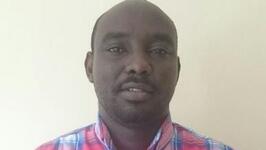
Qambemeda Masala Nyanghura (WP2d)
Mr. Nyanghura studied BSc. Wildlife Management and MSc. Environmental Economics at Sokoine University of Agriculture (SUA), Tanzania. His MSc. dissertation is titled 'Analysis of Economic Efficiency of Wildlife Law Enforcement in Serengeti Ecosystem Protected Areas'. Before he joined LANUSYNCON, he was an Assistant Lecturer in the College of Forest, Wildlife and Tourism at SUA. Mr. Nyanghura is interested in Conservation Economics. His research will focus on the optimization of conservation and livelihood development in wildlife corridors by assessing preferences of farmers on different resettlement options and land use scenarios.
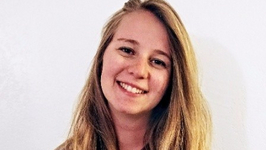
Sara Velander (WP3)
Sara Velander completed a multidisciplinary master’s degree in environmental sciences, policy, and management at Central European University, University of the Aegean, and Lund University, as a part of the Erasmus Mundus Joint Master’s Program (MESPOM). She conducted a Master thesis with a qualitative study on “Securing Land for Sustainable Livelihoods: Perspectives on Land Reform & Contract Farming in Kenya”. She is passionate about climate justice, sustainable development, and land governance. Before she joined LANUSYNCON, she completed an internship with the Agriculture and Investment team at the International Institute for Sustainable Development (IISD) in Switzerland. Sara pursues her doctorate assessing the impact of land use conflicts and synergies in Science-Policy-Interfaces.

Mahmoud Nady Abdelsabour Mohamed
Nady has a multidisciplinary master’s degree in Applied Ecology and Ecosystem Analysis from Kiel University (Germany) and Poitiers University (France), as a part of the Erasmus Mundus joint master’s program (IMAE). Before Joining LANUSYNCON, Nady was part of the International Climate Protection fellowship for prospective young leaders hosted by ZEF- Bonn University, where he worked on quantifying and mapping climate-regulated Ecosystem Services. Nady has an interest in studying human-nature relations, anthropogenic driven environmental changes at different spatial and temporal scales, and vice versa. He is working on understanding the interlinkage between Land cover and human health, ecosystem services, climate change and socio-conomic change. Nady pursues his doctorate on 'Trade-offs and synergies between land-Use change and multiple health dimensions'.

Ashara Nijamdeen is currently pursuing her master’s degree in Agricultural sciences and Resource Management in Tropics and Sub-tropics at the University of Bonn. She finished her bachelor’s degree in Agricultural Sciences and has been working as an intermediate research scientist at the Federation for Environment Climate Technology in Sri Lanka. She has been conducting research and coordinating projects on Climate sciences, Dengue, Hazards, STEM education, and Agriculture. She is passionate about working on different topics including land use, biodiversity, climate systems, and adaptation approaches and uses these for generating practical solutions in tropical venues.
Research Assistants

Melissa Ng’ombe
Melissa Ng’ombe is a research assistant at LANUSYNCON. She holds a Master’s degree in Sustainability Science, Policy, and Society from the University of Maastricht, an interdisciplinary programme focused on governance, policy, and law in relation to sustainability. Previously, she completed a Masters in Translation Studies with TESOL from the University of Stirling, and a Bachelors in English Studies with Südostasienwissenschaften from the University of Bonn. In the past, she has completed internships at the United Nations Convention to Combat Desertification, looking into migration and potential green jobs for young people; and at the University of Iwate, where she taught a module on teaching English to young learners through Content and Language Integrated Learning (CLIL). Prior to joining LANUSYNCON, she worked as a freelance translator.
Former Staff

Dewi Idam Sari
Dewi Idam Sari was a research assistant at Lanusyncon. She holds a master’s degree of European Studies-Governance and Regulation at the University of Bonn, Germany. Previously, she studied the Master of Development Studies at Université Paris 1 in France and the Bachelor of International Relations at Padjadjaran University in Indonesia. Before she joined LANUSYNCON, she worked at the National Council on Climate Change Indonesia and completed an internship at the UNFCCC secretariat (UN Climate Change). Her area of interest is international climate policy, global partnership, democracy as well as gender topics.

Ines Jendritzki
Ines Jendritzki was a research assistant at LANUSYNCON. She completed a Bachelor‘s degree in Environmental and Resource Management at the Brandenburg University of Technology Cottbus-Senftenberg. Being particularly interested in research on climate change impacts and adaptation in the developing world, she pursued her Master’s degree in Sustainable Development Management at Rhine-Waal University of Applied Sciences. Ines supported ZEF as research assistant by investigating the future impacts of pest species on agriculture and food security in different climate change scenarios in Eastern Africa. She wrote her Master thesis within the scope of her work and participation in the LANUSYNCON project.

Dušan Todorović
Dušan Todorović was a research assistant at Lanusyncon. He is completed a Master's degree in Agricultural and Food Economics at the University of Bonn, focusing on agricultural policy and sustainability. Previously, he had completed a Bachelor of Science in Agricultural Economics at the University of Belgrade, Serbia. He was a member of the International Association of Students in Agriculture and Related Sciences (IAAS). Prior to joining Lanusyncon, Dušan gained experience in the private sector.
